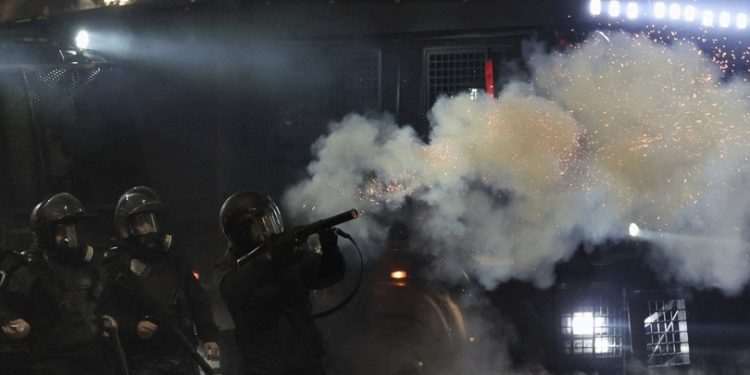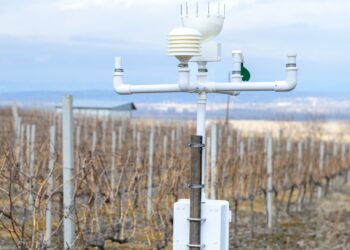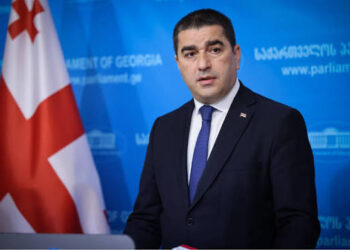Police and other security forces have used brutal violence against largely peaceful protesters in Georgia’s capital, Tbilisi, Human Rights Watch said today. In widespread and apparently punitive acts, security forces have chased down, violently detained, and beat protesters. Police also tortured and otherwise ill-treated them in police vans and police stations, reads a report issued by Human Rights Watch.
Human Rights Watch spoke with a dozen survivors of police violence who said they had sustained head traumas: concussions and multiple fractures to their noses, facial bones, ribs and limbs, and scratches and bruises all over their bodies. Police were wearing riot gear or full-face black masks, with no identifiable insignia. The authorities charged hundreds of protesters with the misdemeanor offense of police disobedience, and prosecuted them in perfunctory trials, while failing to take effective steps to address serious allegations of ill-treatment.
“For over a week, the government responded to the protests with large amounts of tear gas, water cannons, and, at times, rubber bullets to repeatedly disperse largely peaceful crowds. Although there were sporadic and isolated instances of protesters throwing water bottles and fireworks at police in response to police violence, the protests remained largely peaceful. Georgia’s public defender and local observer groups said the police use of force was repeatedly excessive and disproportionate.
Police chased down, encircled, attacked, and beat groups of demonstrators and dragged individual protesters behind police lines, where other officers would continue to punch, kick, and beat them with batons.
Local monitoring groups say that since November 28 the authorities have arrested more than 460 protesters, of whom the majority face administrative charges and approximately 30 face criminal charges. The rights groups said that over 300 of those arrested alleged ill-treatment and torture during or following their arrest, with at least 80 of them requiring hospitalization”, reads the report.
“The level of the authorities’ violence against largely peaceful protesters is shocking, blatantly retaliatory, and violates Georgia’s domestic laws and international norms,” said Hugh Williamson, Europe and Central Asia director at Human Rights Watch. “The scale of the police ill-treatment of protesters and the failure of Georgian authorities to hold them accountable for it indicates they either authorized or condoned the violence.”
The organization says the authorities should immediately call a halt to the police violence, respect the rights to peaceful assembly and expression, and promptly and effectively investigate all allegations of beatings, torture and other ill-treatment, Human Rights Watch said. Such investigations should ensure not only individual accountability, but command responsibility for the excessive use of force.
“Georgia’s international partners should seek independent investigations into the post-election violence. On December 23, participating states of the Organization for Security and Co-operation in Europe triggered the Vienna Mechanism, which calls on the Georgian authorities to provide detailed and substantive information on a number of concerns, including on arbitrary arrests and detentions and ill-treatment of protesters. If the Georgian government does not respond, participating states should be prepared to escalate to the Moscow Mechanism, an inquiry that does not require the targeted state’s consent.
EU member states should use the EU’s Global Human Rights Sanctions Regime to sanction officials responsible for authorizing and carrying out beatings and violence against Georgia’s protesters. At the same time, the EU should step-up, flexible democracy support for civil society and the media”, reads the report.
“Georgian authorities should free all those detained solely for the peaceful exercise of their right to assembly,” Williamson said. “There needs to be a reckoning and accountability for the broken bones and other injuries police intentionally inflicted on so many people.”














